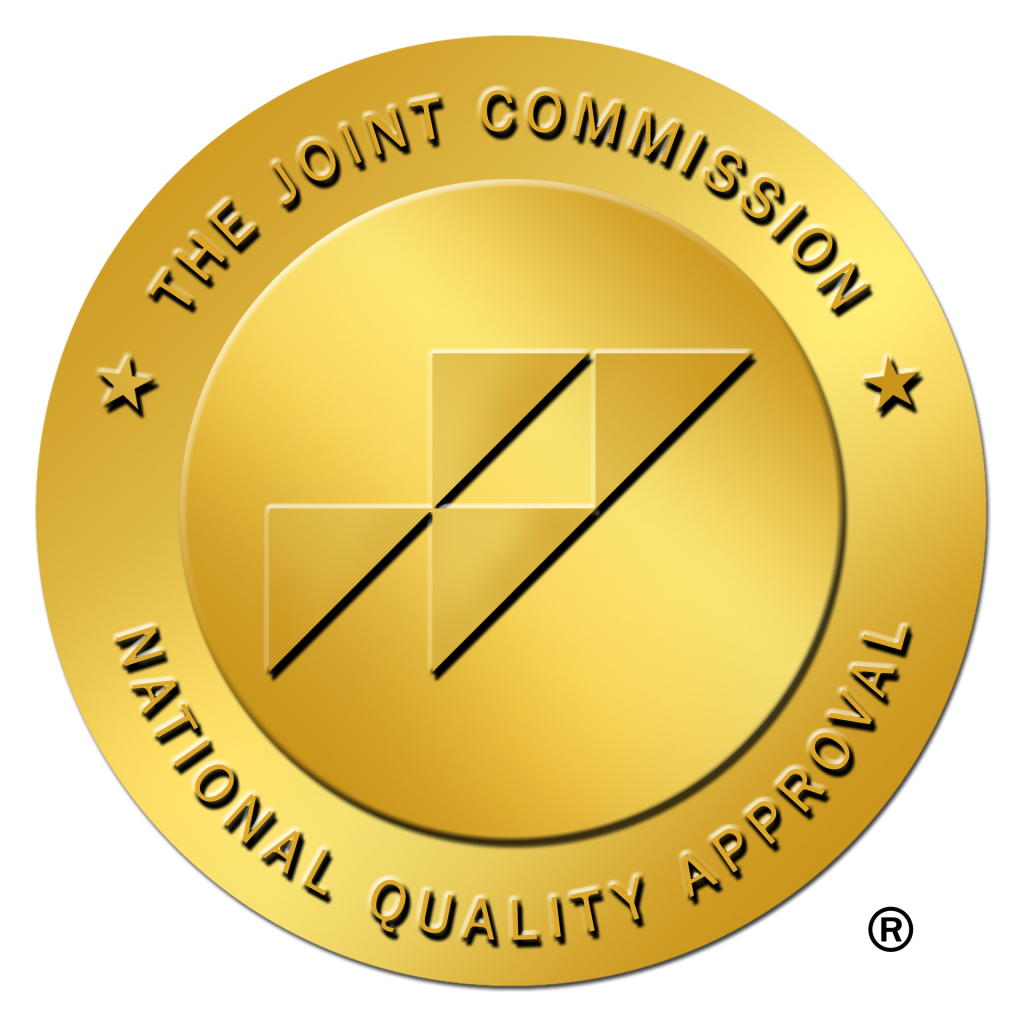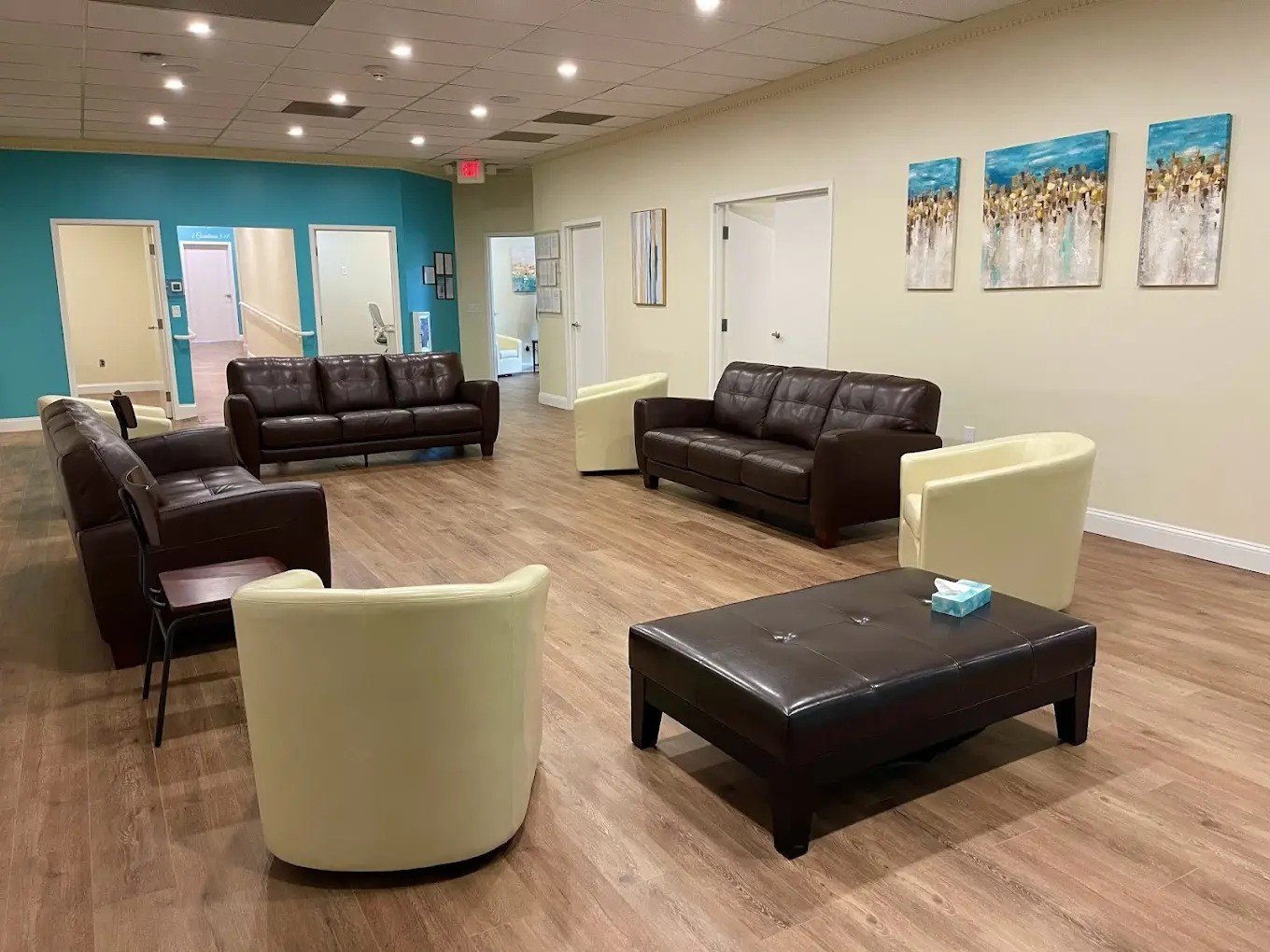Veteran Alcohol Rehab Nj
Importance of Veteran-Focused Treatment
Veterans face myriad challenges upon returning to civilian life, a transition that can be complicated by the prevalence of substance use disorders. It is crucial for these individuals to have access to treatment programs that are specifically designed to address the unique aspects of military life, including deployments, combat experiences, and re-acclimation to civilian society.
Specialized programs like those offered by New Chapter Recovery recognize the importance of tailoring treatment to the veteran population. These programs take into account the high incidence of PTSD, depression, and anxiety among veterans, which are often intertwined with substance use disorders. Addressing these co-occurring conditions is necessary to ensure a holistic recovery.
Personalized treatment plans at facilities such as New Chapter Recovery consider the veterans’ service experiences, aiming to honor their sacrifices by providing effective and empathetic care. This approach not only aids in overcoming addiction but also facilitates a healthier return to everyday life.
Comprehensive Outpatient Options
New Chapter Recovery offers a full continuum of outpatient care that is both flexible and extensive, making it an ideal choice for veterans seeking treatment without the confines of residential rehab. With programs like Partial Hospitalization Program (PHP), Intensive Outpatient Program (IOP), and Outpatient Program (OP), veterans can access the level of care that fits their specific needs.
The PHP at New Chapter Recovery offers structured therapy sessions during the day with the benefit of returning home at night, which is particularly advantageous for maintaining family and community ties. This setup allows veterans to pursue recovery while honoring their daily commitments.
For those who need even more flexibility to accommodate work or education schedules, the IOP provides therapy sessions in a manner that respects their existing obligations. New Chapter Recovery’s OP serves as a step-down from more intensive care, focusing on long-term sobriety and relapse prevention.
Integrated Dual Diagnosis Treatment
A substantial portion of veterans coping with substance use disorders also face mental health challenges such as PTSD, anxiety, or depression. An integrated dual diagnosis approach is essential for addressing these concurrent issues effectively. At New Chapter Recovery, a multidisciplinary clinical team works to provide a seamless and comprehensive treatment plan that addresses both mental health and addiction simultaneously.
This approach ensures that veterans are treated as a whole person rather than isolating their addiction from other psychological issues. By employing evidence-based therapies like Cognitive Behavioral Therapy (CBT) and Dialectical Behavior Therapy (DBT), the program helps veterans uncover the root causes of their addiction and mental health struggles, paving the way for sustained recovery.
Role of Family Support in Recovery
Family support plays a critical role in the recovery journey of veterans. New Chapter Recovery emphasizes the involvement of family members in therapy and support groups, recognizing the profound impact of familial bonds on healing and recovery. Engaging family in the process not only helps in rebuilding trust but also strengthens the support system around the veteran.
Educational programs for families help them understand the complexities of addiction and mental health conditions, preparing them to better support their loved ones. This collaborative approach promotes a healthy environment conducive to long-term recovery.
Specialty Treatment Tracks
Recognizing the diverse needs of veterans, New Chapter Recovery offers specialty treatment tracks that cater to individual preferences and backgrounds. These include animal-assisted therapy, which leverages the therapeutic bond between humans and animals to promote healing and emotional growth.
Veterans may also choose faith-based recovery options that integrate spiritual practices into the therapeutic process, providing comfort and guidance through challenging times. These individualized tracks cater to veterans’ unique senses of identity and values, enhancing the effectiveness of the treatment plan.
The center’s veteran-specific programs are designed to address the unique challenges faced by military personnel, incorporating military culture and experiences into the treatment framework. This specialized focus helps in building trust and understanding between the therapist and the veteran, which is crucial for therapeutic success.
Medication-Assisted Treatment and Relapse Prevention
Medication-assisted treatment (MAT) forms a core component of the care provided at New Chapter Recovery, especially for veterans struggling with opioid and alcohol dependencies. By combining FDA-approved medications with counseling and behavioral therapies, MAT helps to stabilize brain chemistry, reduce cravings, and mitigate withdrawal symptoms.
Relapse prevention is a critical focus of the treatment process. Veterans are equipped with coping strategies and behavioral techniques to manage triggers and stressors they might encounter in daily life. This comprehensive approach is instrumental in ensuring long-term abstinence and recovery.
Accessibility and Affordability of Care
For many veterans, the cost and accessibility of treatment are significant concerns. New Chapter Recovery addresses these issues by working closely with insurance providers, including VA and Tricare benefits, to ensure that veterans receive the care they need without undue financial burden.
The center offers free confidential assessments and expedites insurance verification to streamline the admissions process, allowing veterans to begin treatment as quickly as possible. This commitment to accessibility ensures that financial constraints do not hinder a veteran’s path to recovery.
The flexibility of outpatient programs also reduces barriers to access, accommodating the unique schedules and life circumstances of veterans, making it easier for them to commit to ongoing treatment.
Importance of Therapeutic Modalities
Therapeutic modalities such as Cognitive Behavioral Therapy (CBT), Acceptance and Commitment Therapy (ACT), and experiential therapy are integral to the holistic approach taken by New Chapter Recovery. These therapies provide veterans with the tools to address underlying mental health issues that may contribute to substance use disorders.
ACT, for instance, helps veterans to accept their thoughts and feelings rather than fighting them, promoting psychological flexibility and resilience. CBT focuses on changing negative thought patterns and behaviors, which is particularly effective in managing symptoms of PTSD and depression.
Experiential therapy encourages veterans to explore their emotions and experiences through activities and expressive arts, offering a pathway to healing that transcends traditional talk therapy.
Community Reintegration and Aftercare
Veteran alcohol rehab in NJ is most effective when it incorporates community reintegration as a central element of the recovery process. New Chapter Recovery prioritizes aftercare planning to ensure that veterans are well-equipped to transition back into their communities.
Coordinated aftercare includes ongoing counseling, peer support groups, and access to community resources that support sober living. This comprehensive support system is vital in helping veterans maintain sobriety and achieve a fulfilling life post-rehab.
The center’s commitment to fostering long-term connections with veterans ensures they continue to receive support and encouragement as they navigate the challenges of re-entering civilian life.
What are some misconceptions about veteran-focused treatment for substance use disorders?
A common misconception is that veteran-focused treatment is simply a marketing label rather than a truly specialized approach. In reality, these programs are tailored to address the unique challenges veterans face, such as post-traumatic stress disorder (PTSD), anxiety, and depression, which often co-occur with substance use disorders. For instance, a veteran who has experienced combat might struggle with traumatic memories that intensify their substance use. A veteran-focused treatment program can incorporate therapies like Cognitive Behavioral Therapy (CBT) or Eye Movement Desensitization and Reprocessing (EMDR) to specifically address these concerns. By integrating military cultural competency into the therapy, it acknowledges the veteran’s experiences and builds trust, which is crucial for effective treatment.
Have you encountered any other misconceptions about veteran-focused treatment that you think should be addressed?
What are the advantages of comprehensive outpatient options for veterans?
Comprehensive outpatient options provide significant flexibility, allowing veterans to maintain their daily routines and responsibilities while receiving treatment. Programs like the Partial Hospitalization Program (PHP) and Intensive Outpatient Program (IOP) at New Chapter Recovery offer structured therapy sessions during the day, with the option to return home at night. This setup is particularly beneficial for veterans who have strong family or community ties that can support their recovery. It also allows them to manage work or academic commitments, reducing the disruption that traditional residential programs might cause.
Outpatient care also promotes gradual reintegration into society, which can be less overwhelming for someone who has been in a military environment. It’s an excellent way to balance the need for intensive treatment with the reality of everyday life. Would this type of program fit into your current lifestyle, or do you foresee any challenges?
Why is an integrated dual diagnosis treatment approach important for veterans?
For many veterans, substance use disorders do not occur in isolation. They often accompany mental health conditions like PTSD, anxiety, or depression. An integrated dual diagnosis approach ensures these co-occurring conditions are treated simultaneously, offering a more holistic recovery path. At New Chapter Recovery, the clinical team uses evidence-based therapies such as CBT and Dialectical Behavior Therapy (DBT) to address both addiction and mental health issues. By focusing on the whole person, rather than treating symptoms in isolation, veterans can uncover the root causes of their struggles and develop coping strategies to manage them.
This approach can be life-changing as it acknowledges and respects the complexity of the veteran’s experience. Have you had any experiences where addressing both mental health and addiction together made a significant difference in someone’s recovery?
How does family support influence the recovery process for veterans?
Family support is crucial in the recovery journey because it helps rebuild trust and provides a consistent support system. At New Chapter Recovery, family members are encouraged to participate in therapy and support groups, enhancing their understanding of addiction and mental health challenges. This participation not only educates families but also strengthens the bonds that can be critical in a veteran’s recovery.
An example is a veteran who might be hesitant to open up about their struggles. With family support, they often feel less isolated and more motivated to engage in their treatment plan. Families can provide encouragement and accountability, making a sustainable recovery more achievable. Have you seen how family dynamics can impact someone’s decision to seek treatment?
What variety of specialty treatment tracks do veterans have access to?
Veterans have access to various specialty treatment tracks that cater to their individual preferences and beliefs. New Chapter Recovery offers options like animal-assisted therapy and faith-based recovery. Animal-assisted therapy can connect with veterans on an emotional level that complements traditional therapies. Faith-based recovery options allow veterans to incorporate their spiritual beliefs into their healing process, providing guidance and comfort.
These individualized tracks are vital because they respect the veteran’s sense of identity and values, which enhances engagement and effectiveness. For example, a veteran who finds solace in spiritual practices might thrive in a faith-based program that integrates prayer and meditation. What kind of specialty treatment do you think would resonate with your personal beliefs or experiences?
How effective is medication-assisted treatment (MAT) in preventing relapse for veterans?
Medication-assisted treatment (MAT) is highly effective in preventing relapse, especially when combined with counseling and behavioral therapies. MAT helps stabilize brain chemistry, reduce cravings, and alleviate withdrawal symptoms, which can be significant hurdles for veterans dealing with substance dependencies like alcohol or opioids. At New Chapter Recovery, MAT is part of a comprehensive treatment plan that also focuses on behavioral techniques for managing triggers.
An example could be a veteran struggling with opioid dependency who benefits from medications like buprenorphine, which can decrease cravings and reduce the potential for misuse. Combined with therapy, MAT provides a balanced approach that addresses both biological and psychological aspects of addiction. Have you heard of any personal success stories involving MAT?
How does New Chapter Recovery ensure accessibility and affordability of care for veterans?
New Chapter Recovery is committed to making treatment accessible and affordable for veterans by collaborating with insurance providers, including VA and Tricare benefits. This collaboration minimizes the financial burden on the individual. Free confidential assessments and expedited insurance verification processes are offered to initiate treatment without delay, addressing a common barrier to accessing care.
The flexibility of outpatient programs also reduces barriers by fitting into veterans’ unique schedules and life circumstances. This approach not only facilitates prompt access but also ensures treatment is in line with the veteran’s financial and personal needs. Have you encountered any obstacles in accessing care that you believe should be addressed?
What is the significance of therapeutic modalities in treating veteran substance use disorders?
Therapeutic modalities are crucial as they offer diverse methods to address the complex mental health and addiction issues veterans face. At New Chapter Recovery, evidence-based therapies like CBT, Acceptance and Commitment Therapy (ACT), and experiential therapy provide personalized care. For example, ACT helps veterans accept their thoughts and emotions, promoting psychological resilience, while CBT focuses on altering negative thought patterns.
Experiential therapy, which involves activities and expressive arts, allows veterans to process their emotions in a non-traditional setting, leading to breakthroughs that might not occur in standard talk therapy. This holistic approach ensures that treatment is not just about sobriety but about overall mental well-being. Have you ever tried a therapy that took an unconventional approach, and how did it impact your experience?
How does community reintegration and aftercare support veterans post-treatment?
Successful reintegration into the community is a central focus at New Chapter Recovery. Aftercare planning includes ongoing counseling, peer support groups, and access to community resources that promote sober living. This coordinated support ensures that veterans are not left to navigate the complexities of civilian life alone.
For instance, continued engagement in peer support groups can provide a sense of belonging and encouragement as veterans adapt to post-rehab life. Building a stable support network can significantly aid in maintaining sobriety. What do you think are the critical elements of a successful community reintegration plan?
Resources
- National Center for PTSD – The National Center for PTSD, run by the U.S. Department of Veterans Affairs, provides comprehensive information and resources on post-traumatic stress disorder.
- Substance Abuse and Mental Health Services Administration (SAMHSA) – SAMHSA is a government organization that leads public health efforts to advance the behavioral health of the nation.
- American Psychiatric Association – The American Psychiatric Association is a professional organization of psychiatrists that offers resources on mental health disorders and treatment options.
- National Alliance on Mental Illness (NAMI) – NAMI is a grassroots mental health organization providing support and advocacy for individuals and families affected by mental illness.
- U.S. Department of Veterans Affairs – The VA provides healthcare services to eligible veterans, with resources for mental health and substance abuse treatment.






